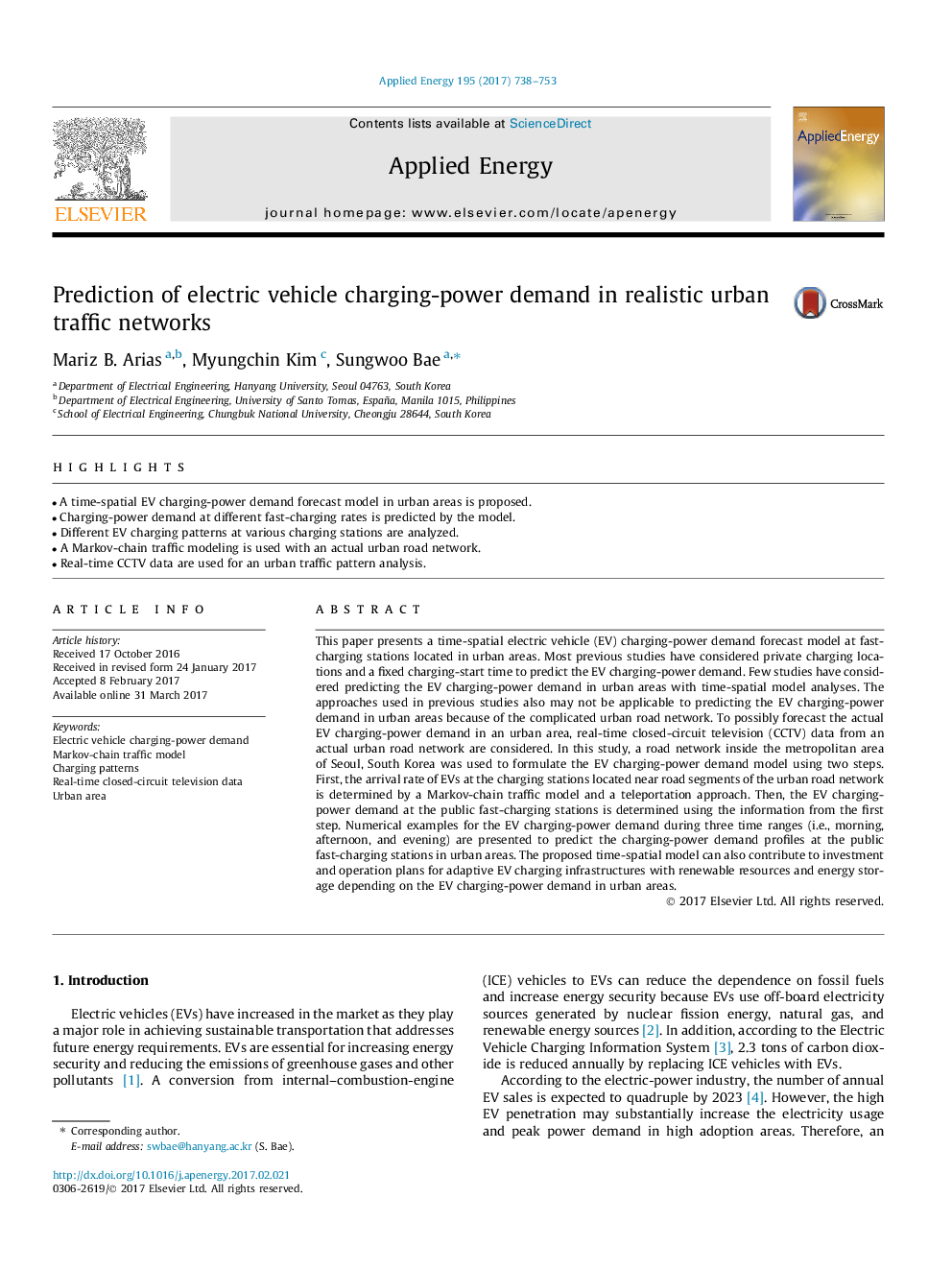| Article ID | Journal | Published Year | Pages | File Type |
|---|---|---|---|---|
| 4916517 | Applied Energy | 2017 | 16 Pages |
Abstract
This paper presents a time-spatial electric vehicle (EV) charging-power demand forecast model at fast-charging stations located in urban areas. Most previous studies have considered private charging locations and a fixed charging-start time to predict the EV charging-power demand. Few studies have considered predicting the EV charging-power demand in urban areas with time-spatial model analyses. The approaches used in previous studies also may not be applicable to predicting the EV charging-power demand in urban areas because of the complicated urban road network. To possibly forecast the actual EV charging-power demand in an urban area, real-time closed-circuit television (CCTV) data from an actual urban road network are considered. In this study, a road network inside the metropolitan area of Seoul, South Korea was used to formulate the EV charging-power demand model using two steps. First, the arrival rate of EVs at the charging stations located near road segments of the urban road network is determined by a Markov-chain traffic model and a teleportation approach. Then, the EV charging-power demand at the public fast-charging stations is determined using the information from the first step. Numerical examples for the EV charging-power demand during three time ranges (i.e., morning, afternoon, and evening) are presented to predict the charging-power demand profiles at the public fast-charging stations in urban areas. The proposed time-spatial model can also contribute to investment and operation plans for adaptive EV charging infrastructures with renewable resources and energy storage depending on the EV charging-power demand in urban areas.
Keywords
Related Topics
Physical Sciences and Engineering
Energy
Energy Engineering and Power Technology
Authors
Mariz B. Arias, Myungchin Kim, Sungwoo Bae,
